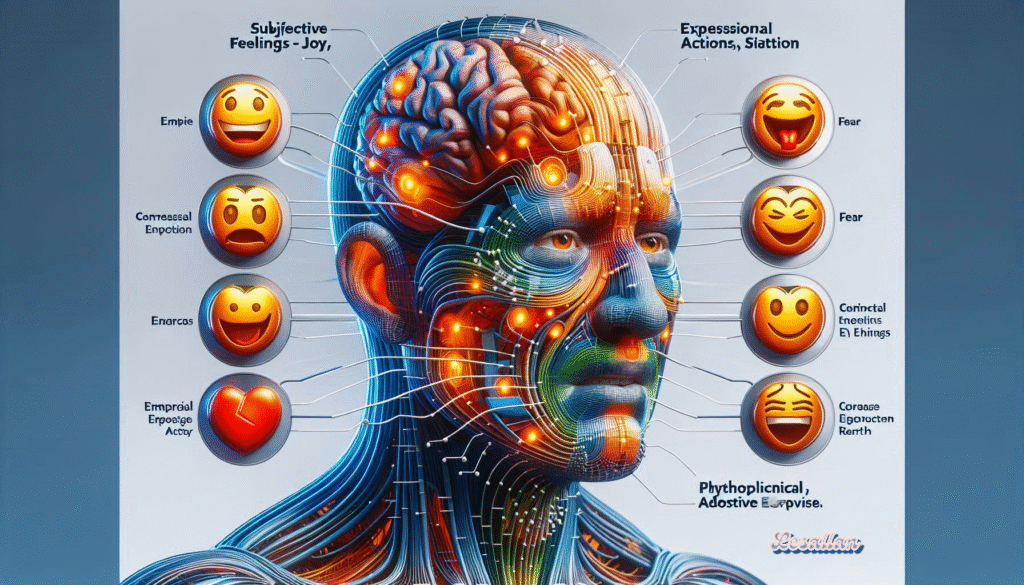Lesallan | June 11, 2025

Functions of Emotion in Conflict: An Emotional and Spiritual Perspective
Lesallan Bostron
Ohio Christian University
COM3040 Conflict Resolution (ONL25SP4)
Professor Christina Oda
June 11, 2025
Functions of Emotion in Conflict: An Emotional and Spiritual Perspective
Emotions are complex physiological and cognitive responses that signal our appraisal of situations and drive adaptive behaviors. They encompass subjective feelings (e.g., joy, fear), expressive actions (e.g., facial cues), and physiological arousal (e.g., increased heart rate) (Hocker et al., 2022). Far from being irrational impulses to suppress, emotions serve as vital barometers, alerting us to interpersonal threats or opportunities for connection. Recognizing the constructive functions of emotions enables more authentic engagement and paves the way for deeper conflict resolution and spiritual growth.
In conflict, emotions function as both warning systems and catalysts for action. A surge of anger may indicate perceived injustice, motivating one to address a violation of personal boundaries. Fear can highlight the risk of relational breakdown, prompting protective or reconciliatory measures. Even joy, experienced when reconciliation occurs, reinforces cooperative behaviors (Hocker et al., 2022). Emotions thus shape how parties interpret intentions, choose communication strategies, and sustain commitment to resolution. By attending to these affective cues, participants in conflict can navigate disputes with greater clarity and empathy.
Many assume that “getting emotional” equates to losing control, leading to an undervaluing of emotional data (Bloom, 2012). Two common myths persist: that emotions are inherently unreliable and that they must be quelled to think clearly. Emotions are neither enemies nor infallible guides—they are a gauge of underlying needs and values (Bloom, 2012). When we fear vulnerability, we risk ignoring critical information about our own boundaries or our counterpart’s unspoken concerns. Such fear-driven avoidance can entrench conflict, foster resentment, and misunderstanding.
Anger, fear, and anxiety are the most prevalent negative emotions in conflict. Anger often surfaces when boundaries are crossed, signaling a call for justice or respect. Left unchecked, it can escalate into hostility or aggression (Hocker et al., 2022). Fear arises from perceived rejection or loss of status, triggering withdrawal or defensiveness. Anxiety—rooted in uncertainty about outcomes—can immobilize decision-making or amplify irritability. Although these emotions may feel overwhelming, their presence is informative: they reveal core concerns and illuminate the stakes involved.
Managing conflict-related emotions involves both self-regulation techniques and spiritual disciplines. Cognitive reframing—reinterpreting an adverse event in more balanced terms—helps mitigate exaggerated threat responses (Bloom, 2012). Deep breathing and brief time-outs can help reduce physiological arousal, allowing for clearer thinking (Bradley, 2023). Spiritually, Scripture offers profound tools:
Self-control, as a fruit of the Spirit, acts as a powerful counter to impulsive anger, as highlighted in Galatians 5:22-23 (NIV). This quality encourages individuals to manage their emotional responses more effectively. Additionally, Philippians 4:6-7 (NIV) urges believers to bring their anxieties before God in prayer, assuring them of a peace that transcends understanding. This practice of turning to prayer can significantly alleviate stress and promote emotional stability. Furthermore, James 1:19 (NIV) provides valuable wisdom by advising individuals to be “quick to listen, slow to speak, and slow to anger.” This approach fosters empathetic engagement and helps cultivate a more understanding and compassionate communication style.
By weaving emotional awareness with prayer and biblical wisdom, we gain both practical coping methods and transformative perspectives.
In my conflicts, whether with family, colleagues, or within my spiritual community, I often feel an initial sense of resentment when my values are compromised. Recognizing that anger reflects my longing for justice, I now pause to ask: “What boundary am I defending? What lies beneath this response? Slowing my reaction through prayer and breathing exercises has allowed me to listen more deeply, uncovering that fear of rejection often intensifies my defensiveness. Embracing conflict as a classroom for emotional maturity, I have learned to ask God for humility and compassion, turning each dispute into an opportunity for both relational repair and spiritual formation.
Emotions are indispensable guides in conflict, alerting us to boundary violations, relational risks, and opportunities for reconciliation. Dispelling misconceptions about emotional expression frees us to harness affective signals constructively. By combining cognitive strategies with Scriptural principles—self-control, prayerful surrender, and empathetic listening—we transform negative emotions into catalysts for growth. In doing so, conflict becomes not a detour from spiritual life, but an essential path toward deeper self-awareness, stronger relationships, and greater Christ-like character.
Blessings,
Lesallan
References:
Bloom, J. (2012, August 3). Your emotions are a gauge, not a guide. Desiring God.
https://www.desiringgod.org/articles/your-emotions-are-a-gauge-not-a-guide
Bradley, M. (2023, August 24). How to handle negative feelings when wronged by others. Bible
Knowledge. https://www.bible-knowledge.com/how-to-handle-negative-feelings/
Hocker, J. L., Berry, K., & Wilmot, W. (2022). Interpersonal conflict (11th ed.). McGraw-Hill.
The Holy Bible, New International Version. (2011). Zondervan.



0 Comments